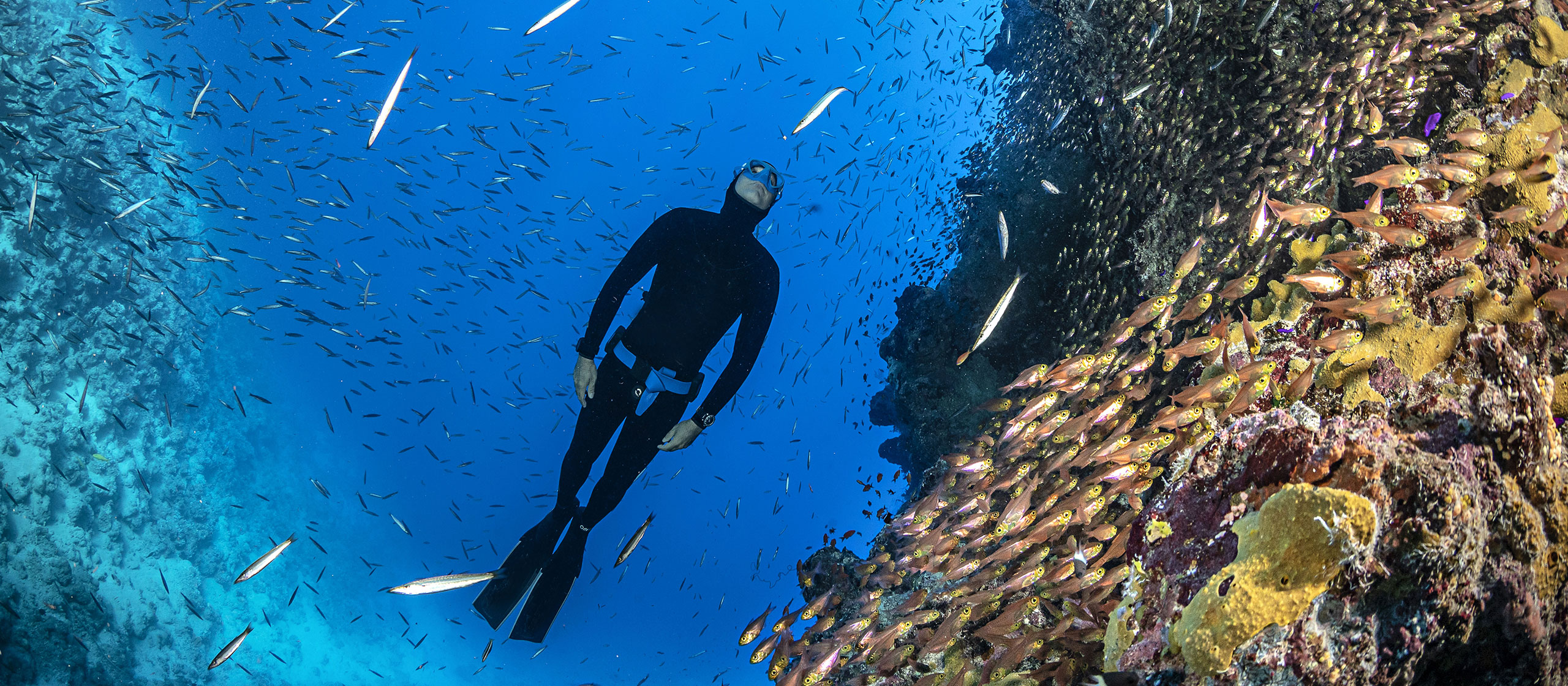Dive stories
Understanding The Secrets of Deep Freediving: Tips from Three National Record Holders
Have you ever watched videos from freediving competitions and wondered whether those dives felt as easy to the athletes as they made them look?
How much work and effort is behind those record-breaking dives? How does it feel to dive that deep? Is everyone capable of diving to those depths? We reached out to three freediving national record holders to ask these questions and more. Are you ready to discover the secrets of deep freedivers?
Meet the athletes
Harry Chamas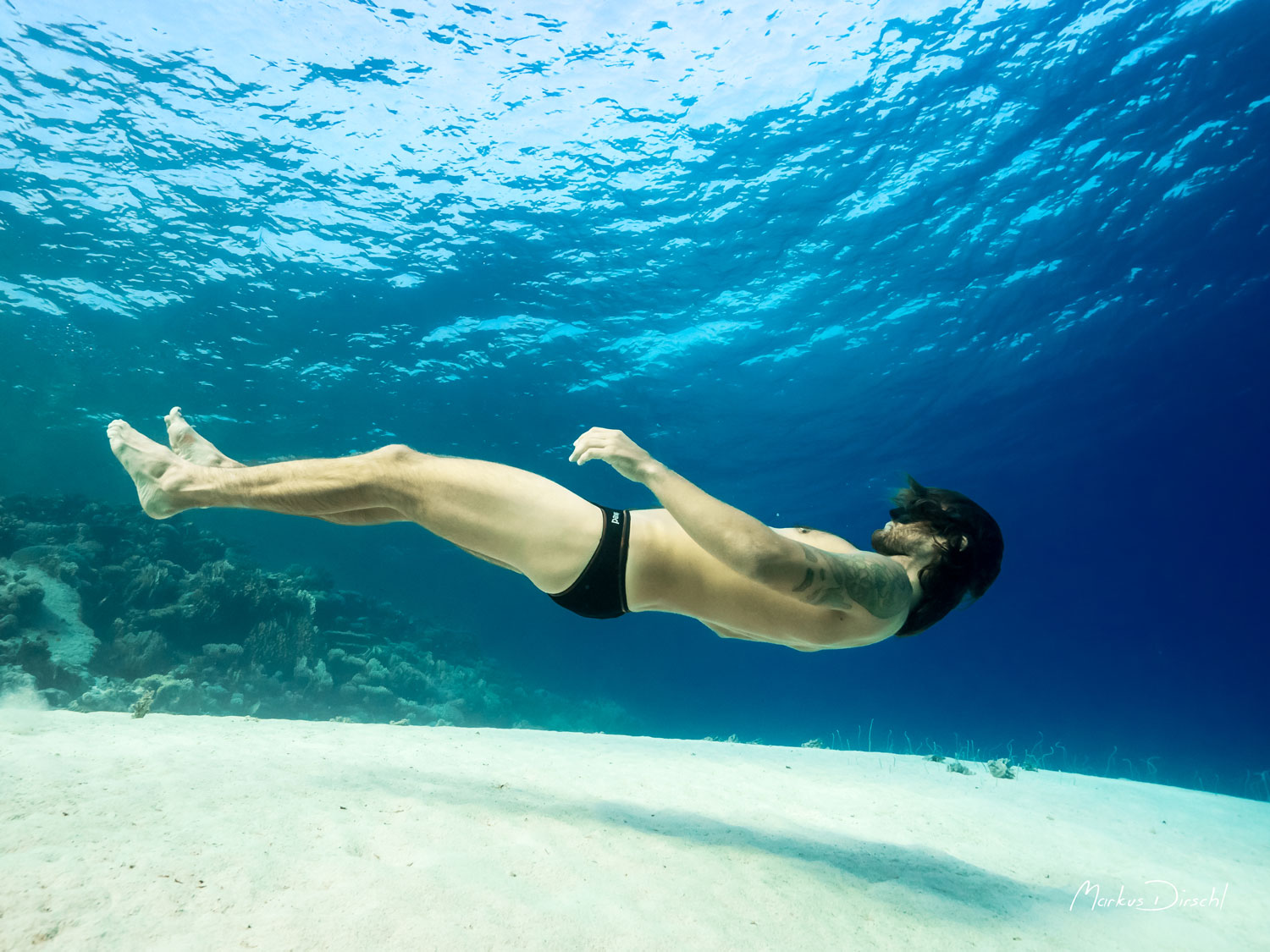 Photos: Markus Dirschl
Photos: Markus Dirschl
- Personal Coaching from a Professional Freediver | Dahab | Freedive Passion
- www.instagram.com/freedivepassion/
Harry Chamas is a freediving coach and athlete from Great Britain and currently holds three national records:
- Variable Weight (VWT): 105m (2016, Kalamata, Greece)
- No Limits (NLT): 120M (2017, Kalamata, Greece)
- No Limits (NLT) 141m (2021,Sharm El Sheikh, Egypt)
Harry discovered freediving twelve years ago whilst travelling in Australia, and slowly fell more in love with the sport. He became an instructor in 2011, and decided to become a personal freediving coach from 2017. He has coached athletes to achieve over 40 national records, and has an informative Youtube channel where he gives tips to aspiring deep freedivers. Check out his podcast for interesting conversations surrounding freediving: InDepth Freediving Podcast.
Stefan Randig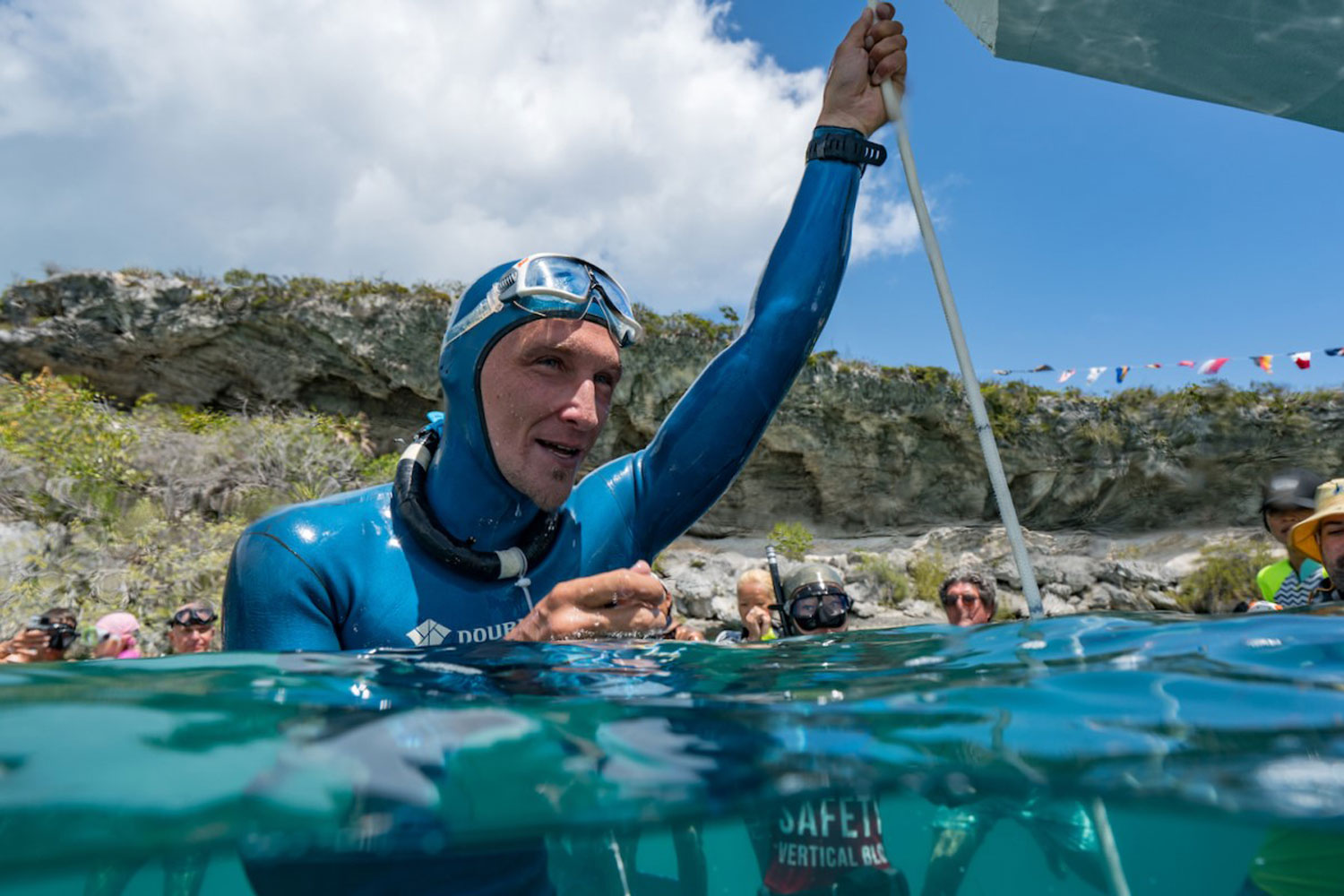 Photo: Daan Verhoeven
Photo: Daan Verhoeven
Stefan Randig is a freediving instructor trainer who holds 17 national records for Germany. His current records are:
- Constant Weight (CWT): 100m (September 2017, Panglao, Philippines)
- Free Immersion (FIM): 95m (May 2017, Panglao, Philippines)
- Constant Weight No Finds (CNF): 75m (November 2021, Sharm el Sheikh, Egypt)
Stefan started freediving in 2006 in Dahab, Egypt, and set his first national record in Germany in 2011. He taught freediving full time for 12 years before returning to Dahab in 2020 where he is currently based and focusing almost solely on his training. Stefan is a DAN Europe member.
Dave McGowan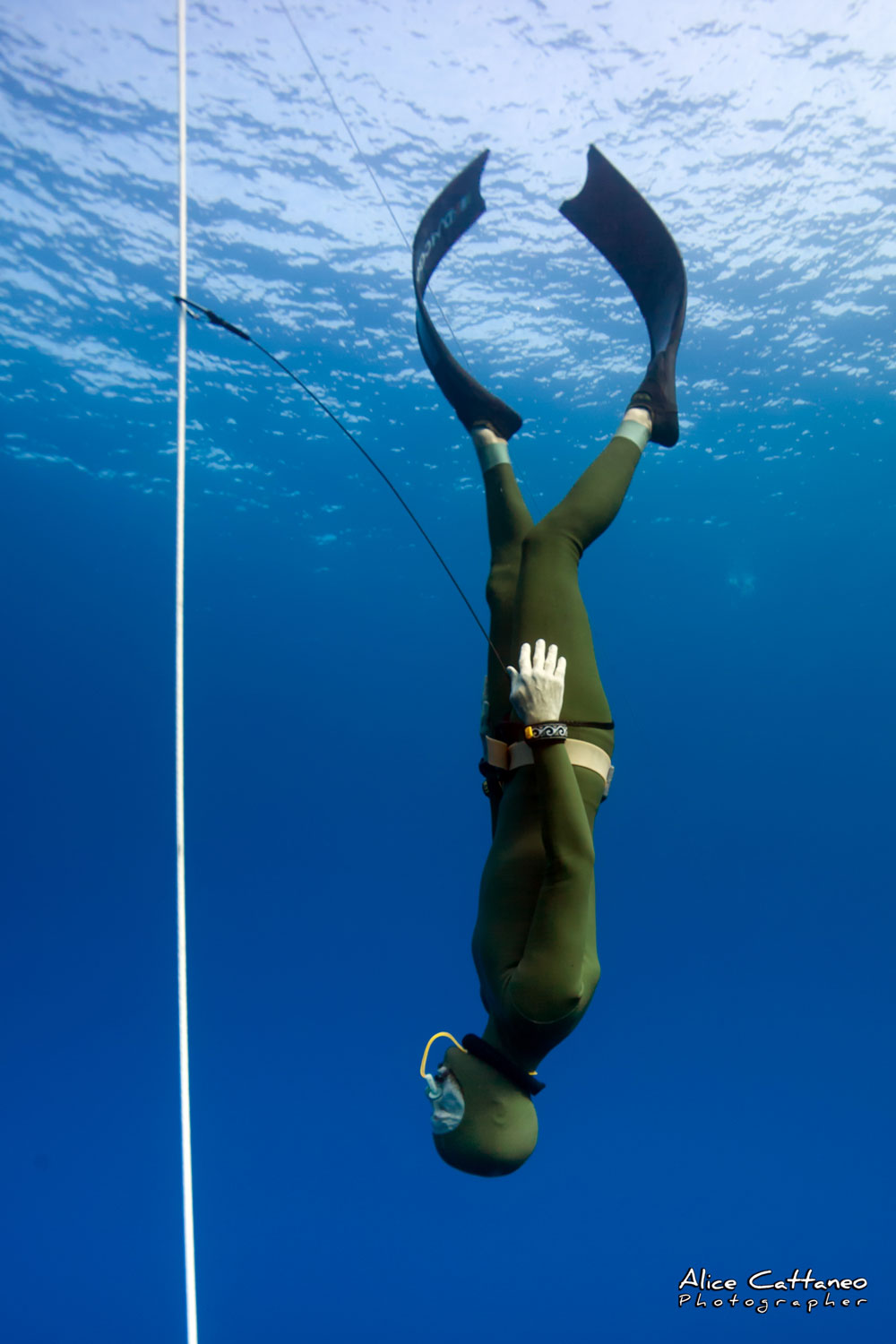 Photo: Alice Cattaneo
Photo: Alice Cattaneo
Dave McGowan (or McGoo as he is known in the community) is a freediving instructor and athlete from Ireland who holds national records in both pool and in depth:
- Static Apnea (STA): 5:59 (November 2016, Bristol, UK)
- Constant Weight With Bi-Fins (CWTB): 71m (September 2020, Sharm El Sheikh, Egypt)
- Dynamic Apnea with Bi-Fins (DYNB): 150m (May 2021, Dahab, Egypt)
Dave entered the world of freediving in around 2013 in the form of spearfishing, he was self-taught but says his freediving rapidly improved from taking his first official course and joining a freediving club in Ireland. Dave visited Dahab, Egypt a couple of times throughout 2019 and 2020, which is when he really found the time and depth to train to become a deep diver. He is now based full time in Dahab and is mostly focused on teaching, but plans to compete again in the future. Dave is a DAN Europe member.
How deep is “deep”?
Isn’t that the key question? Ask your family and friends who have never tried freediving before what they consider a deep dive to be. They will likely say that 5-10m is an impressive deep dive. But ask freediving athletes who train regularly, and are surrounded by a deep-diving community and you’re likely to hear a very different answer:
Harry: “A dive that I would have to really prepare for beforehand… for me that would be around 80m in traditional disciplines, or below 110m on the sled”.
Stefan: “As freedivers we are all on our own very personal journey, and depending on what level we are and maybe also where we want to be, we all have our own perception of distance, time and depth. My own definition of "deep" has changed over the years. It's actually hard to say… Is it a depth that requires more preparation and planning? Is it a depth that is physically demanding, when I step outside my comfort zone? Does the definition of "deep" change with daily form, water conditions, equipment, discipline, etc.? Maybe a combination of those points. To put a number on it, for me personally I would consider a dive to be deep from around 60m”.
Dave: “This is a strange question for one living in Dahab. Aside from a select few people here, it doesn’t matter who you are, there will always be someone [diving] deeper than you.” He went on to say, “For most people getting to 40 m is a challenge that takes a great deal of time and effort, so if you are making those kinds of depths then you can of course consider yourself a deep diver”.
How does it feel to dive deep?
Divers often have differing experiences of diving deep—most feel intense levels of relaxation and peace. You will rarely hear a deep diver say they feel very stressed or scared when diving to near their deepest personal best (PB) depths. They might feel a little nervous, but they have done months—if not years—of training to get them to this point. No one wakes up one day and decides to try for a 100m dive. It’s something that comes with planning, time, and experience, and it’s this experience, that leads to confidence and beautiful sensations when diving deep.
We asked our national record holders how they felt when doing their deepest dives.
Harry: “I have a very high degree of focus and concentration on deep dives, but when you’re totally confident in the depth that you’re doing, you can just zone into the sensations; the freefall—that feeling of sinking through the water effortlessly, the feeling of the water over the skin, the feeling of yourself dissolving away. There’s no other experience that can compare; freediving is the only way you can feel these things”.
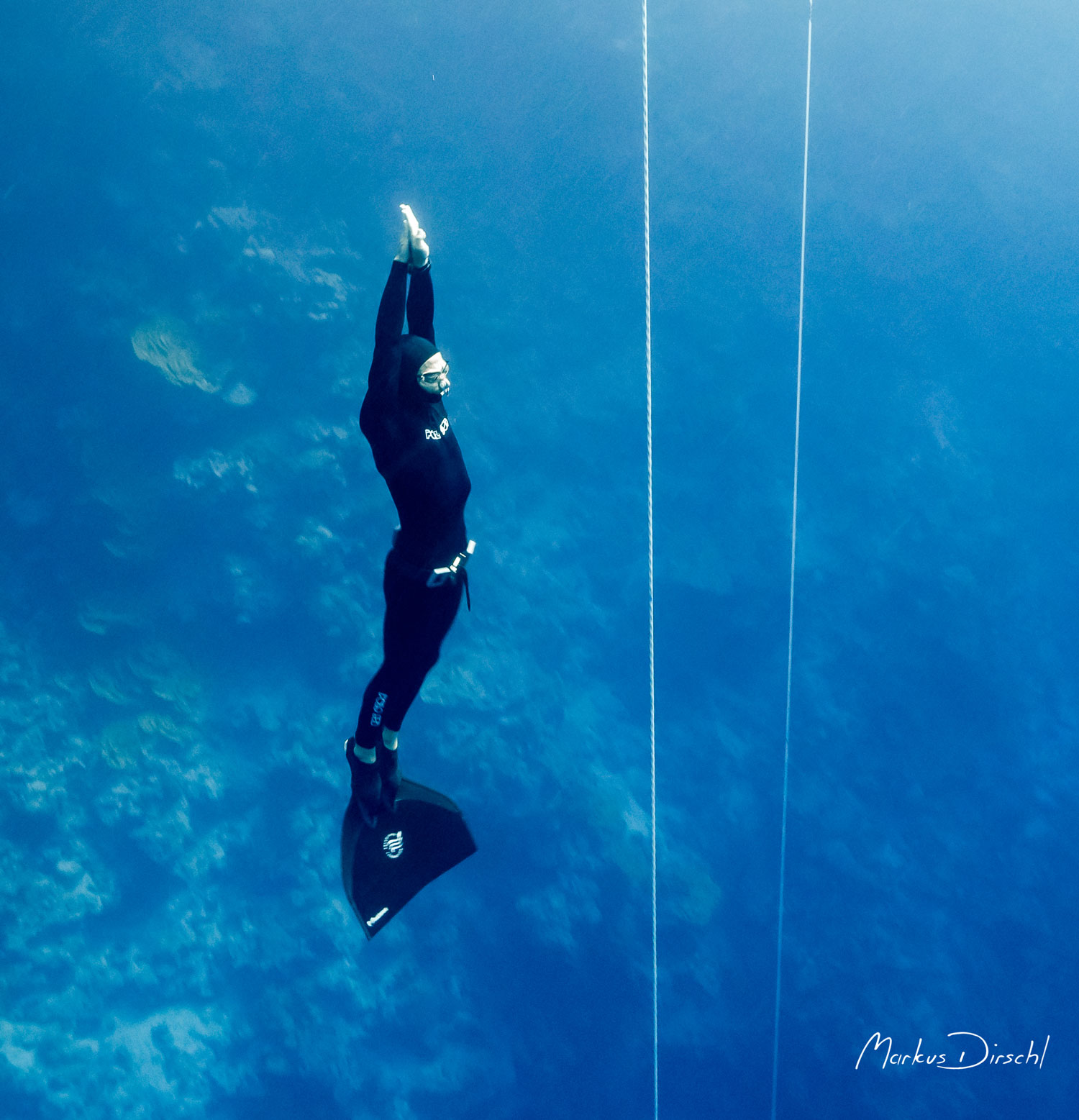 Photos: Markus Dirschl
Photos: Markus Dirschl
Stefan: “I love the different phases that we go through in deep diving, and the intense emotions that come with each stage of a dive. The focus and concentration beforehand, and then a gentle entry and start of the dive. Moving in to deep relaxation during free fall, the onset of narcosis at greater depth, and the focus on technique and efficiency on the way up. Then of course there’s the joy that a successful dive brings after surfacing. Going through so much in just 3-4 minutes underwater is an indescribable experience. For me personally, it is still a very unique experience that is hard to put in words, even after thousands of deep dives”.
Dave: “For me it can be only described as pure bliss. When all of your training is approached in the right way, and there is no struggle, the deep dives come easy, as they should. The freefall is incredible, the equalisation seems effortless, and turning at the bottom gives you this powerful sense of achievement that fills you with the confidence that you can do more, and continue to go deeper and deeper”.
Can anyone dive deep?
Do these divers have magic powers or can anyone dive to these incredible depths? It seems that with hard work and dedication, any healthy person can reach impressive depths while freediving. But there are some lucky individuals that seem to excel and progress very quickly in deep freediving, without facing as many issues as others who are less gifted.
Let’s find out what our deep divers think:
Harry: “Perhaps it’s true that not anybody can become a deep diver. But I think as long as you don’t have any serious factors working against you, and you have enough time and dedication for freedive training, then what seems like a crazy depth right now, isn’t actually that hard to reach”
Stefan: “Apart from genetic predispositions that definitely play some role, individual divers will require a very different amount of work, training, and effort to get close to depths of 100m. I wouldn't call myself talented, it took me over 10 years of training and overcoming a lot of difficulties to get to 100m. It’s impossible to say if everyone can do 100m, but certainly, with a good approach to training and the right amount of dedication, everyone can progress to do very impressive dives”.
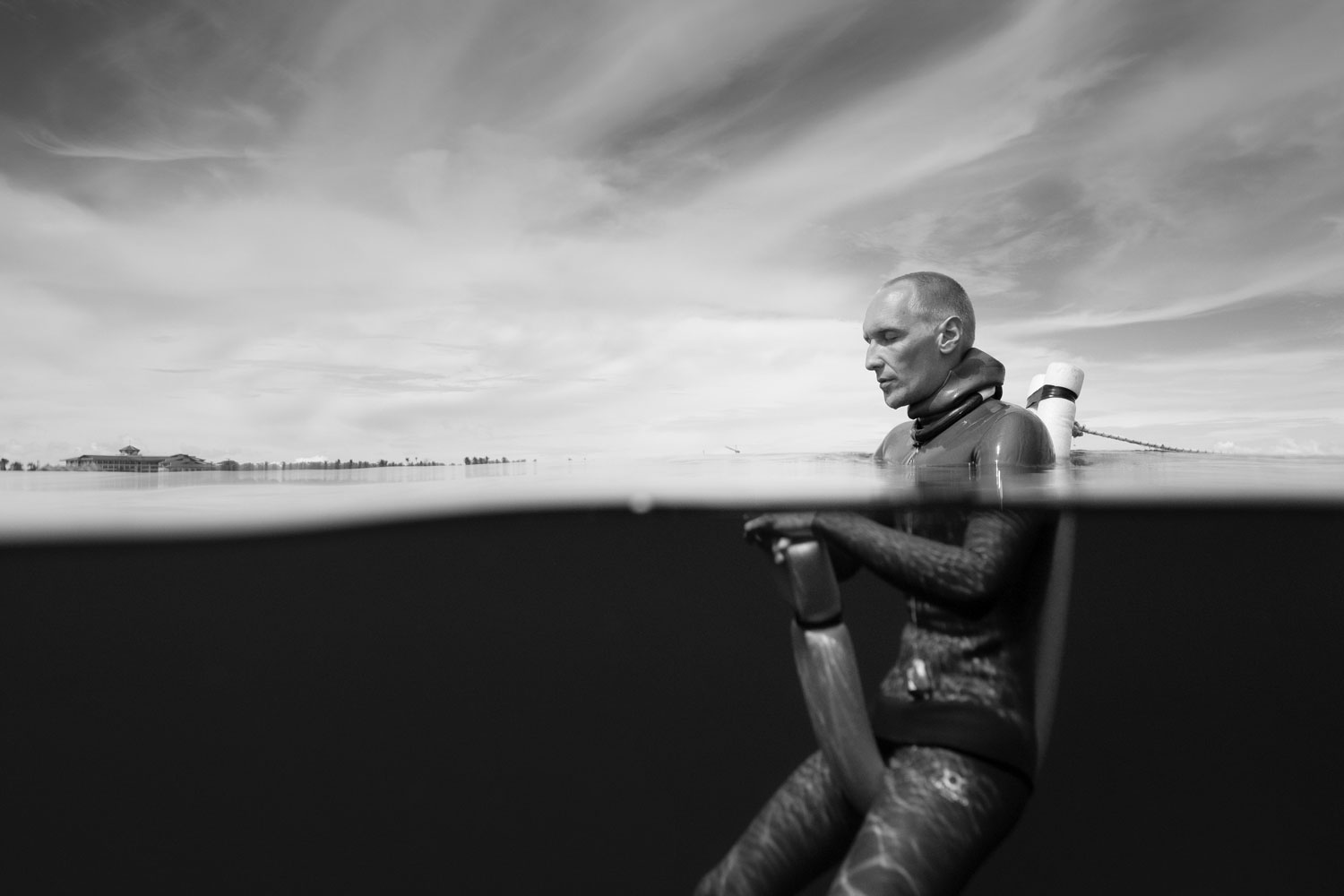 Photo: Nanna Kreutzmann
Photo: Nanna Kreutzmann
Dave: “Can anyone dive +70m? Yes I think so, given time and the right approach; I think those kinds of depths are achievable for most. Maybe it’s unrealistic to think everyone can get to 100m, but where is the threshold that separates someone that works hard from someone that also has the advantage of some natural talent? That I don’t know”.
How to become a deep diver
So you want to freedive to these awesome depths? We asked our divers what key elements are essential to becoming a deep diver.
Here’s what they said:
Never stop learning
Knowledge is key to becoming successful in anything. In freediving there is always something new to learn as the sport is still fairly new and is continuing to grow and change.
Stefan: “In general I would say it's important to keep learning, no matter which level we dive at. Find an instructor or coach and keep an open mind. I think it's important to find a good balance between being consistent in training but also not to get too stuck with a certain routine or way of diving, to be ready to experiment and evolve under professional guidance”.
Dedication and sacrifice
It’s true of most sports that to become one of the best, you must sacrifice other areas of your life for a while. Becoming a deep freediver involves focus and dedication that not everyone is ready or able to give.
Stefan: “Training and my progress in freediving have a very high priority for me, and I'm ready to sacrifice a lot of other things in life for that”.
Equalisation
Unfortunately equalisation can hold some people back from becoming a deep freediver, some struggle to fenzel and have to spend time perfecting that, and then as they start to dive deeper they most likely have to learn mouthfill; a whole new way of equalising. Equalisation is probably what freedivers spend most of their time focusing on in order to get deeper.
Harry: “I teach many people who come to me with equalisation problems and who want to learn mouthfill to get deeper. I offer distance and in-person coaching just on equalisation, it’s something some divers struggle with and there’s a lot of information out there that over-complicates it.”
Dave: “I think all too often people barrel down to depths they can just about reach because they can somehow equalise, neglecting the fact that building a strong foundation is key to diving deep and making continual improvements in the long term”.
Regular dive sessions
The only way to get deeper is to make time to dive regularly. Set up a training plan and work on the things you need to improve, before trying to hit PB depths.
Dave: “Taking the time to fine tune all the different elements of your technique, spending hours in the water working on the individual aspects that will make your diving more graceful, more efficient, and in the end more enjoyable”.
Physical training
Freediving as an activity is something that anyone can enjoy, regardless of size or fitness level. But as a freediving athlete who wants to reach extreme depths, fitness becomes more of a factor.
Harry: “To deep dive, your muscles need to be used to working without oxygen, and working under higher levels of lactate. My personal motto is ‘train hard, dive easy’. In order to dive deep, physical training is important to become flexible and strong, so that kicking or pulling up from these depths isn’t as challenging”.
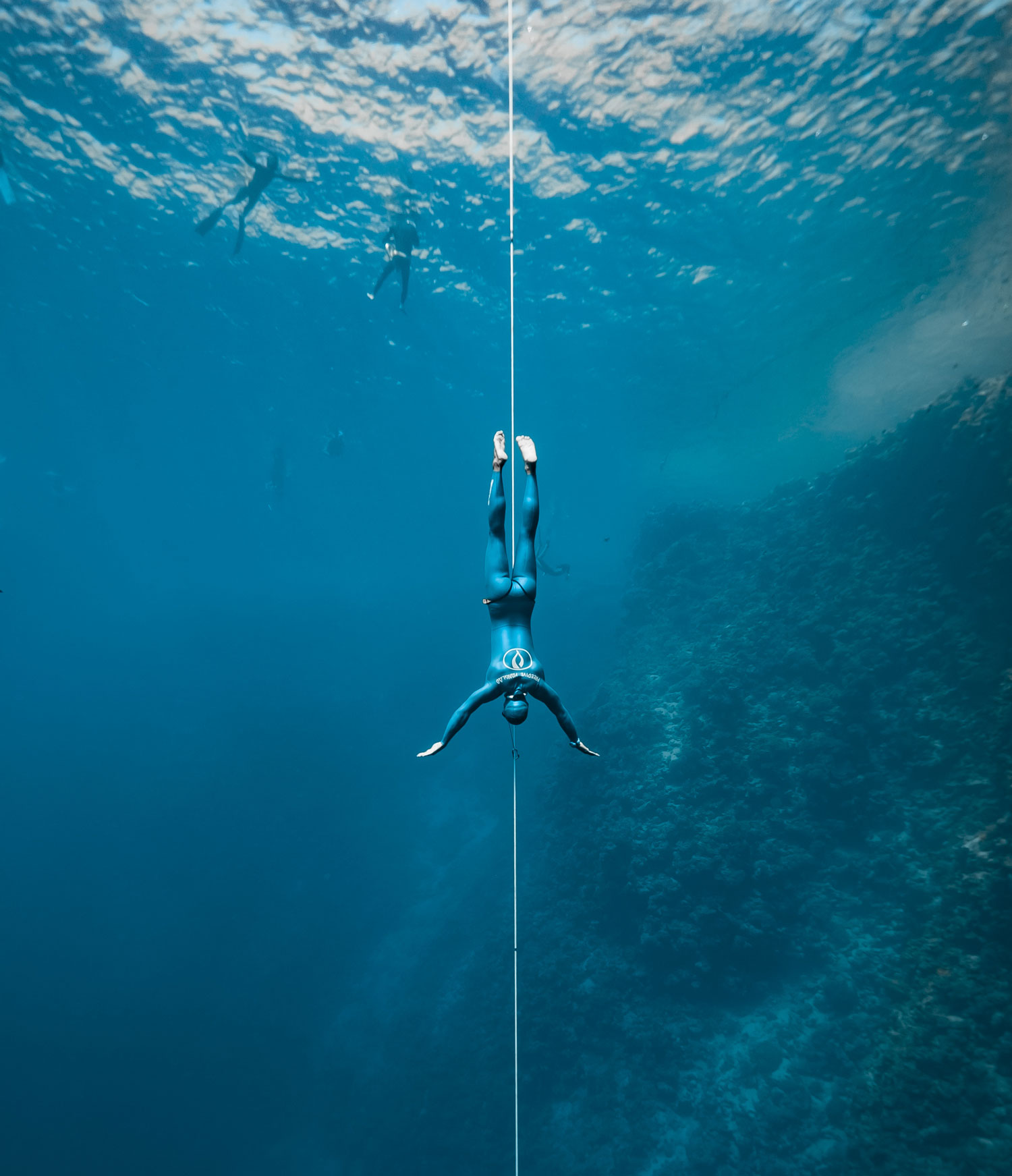 Dahab Apnea Competition – Stefan Randig
Dahab Apnea Competition – Stefan Randig
Mental training
Being mentally strong is just as important as being physically strong when it comes to deep freediving. You have to stay calm, relaxed, and feel confident with the depth that you are diving to. If you freak out at 80m deep, you can’t just quit, you have no choice but to keep going. A good attitude, and a strong, calm mind is key.
Harry: “Divers who go to these depths, they don’t fight their way down there, it shouldn’t feel challenging like how it might feel to beginners. It should always feel like you’re doing something that’s totally within your skill set and abilities” He went on to add, “From the outside, deep freediving might look like an extreme sport, but it shouldn’t feel that way. There shouldn’t be any anxiety or adrenaline—it should feel like a type of meditation where you’re only semi-conscious of the situation that you’re in”.
Stefan: “What I find one of the most important things in deep freediving is something that is very hard to teach: It's finding the right attitude towards diving. There is a certain mindset that will result in joy underwater, success, and eventually depth. Then there is an attitude that will result in injury and frustration”.
The magic combination
It seems that each of the above aspects is as important as the last. Bringing them all together is the key to success in deep diving.
Harry: “Good CO2 tolerance, technique, hypoxic tolerance, automation, relaxation, focus, awareness, and equalisation are all things that need to be perfect when trying to dive deeper. Just being good at one thing isn’t enough, you need to work on everything”.
Dave: “For me diving deep is a consequence of doing a series of things in the right way over time. Approach your diving like this and it will continue to be a relaxing and enjoyable sport for you”.
So now you know how to become a record breaking, deep freediver just like these three. It’s not as easy as they make it look, eh? But depths like these are possible for almost anyone with dedication and the right mindset. You just have to be willing to put in the work.
About the author
Charly is a writer who’s originally from the UK but has been based in Dahab, Egypt for the past four years. She taught scuba diving for three years in Cyprus, Thailand, and Egypt before discovering her love of freediving. She still scuba dives for fun but these days she’s more focused on her freediving training. When she’s not in the water, diving, she’s on her laptop, writing about diving.


